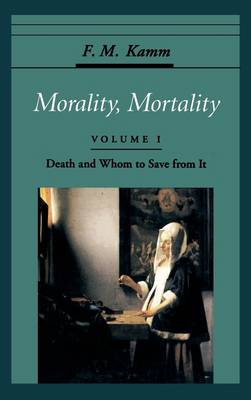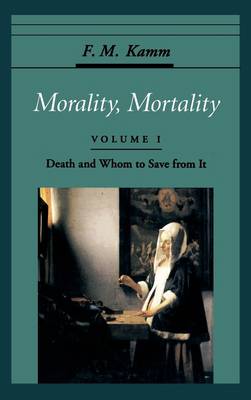
- Retrait gratuit dans votre magasin Club
- 7.000.000 titres dans notre catalogue
- Payer en toute sécurité
- Toujours un magasin près de chez vous
- Retrait gratuit dans votre magasin Club
- 7.000.0000 titres dans notre catalogue
- Payer en toute sécurité
- Toujours un magasin près de chez vous
517,45 €
+ 1034 points
Format
Description
Why is death bad for us, even on the assumption that it involves the absence of experience? Is it worse for us than prenatal nonexistence? Kamm begins by considering these questions, critically examining some answers other philosophers have given. She explores in detail suggestions based on our greater concern over the loss of future versus past goods and those based on the insult to persons which death involves. In the second part, Kamm deals with the question, "Whom should we save from death if we cannot save everyone?" She considers whether and when the numbers of lives we can save matter in our choice, and whether the extra good we achieve if we save some lives rather than others should play a role in deciding whom to save. Issues such as fairness, solidarity, the role of random decision procedures, and the relation between subjective and objective points of view are discussed, with an eye to properly incorporating these into a nonconsequentialist ethical theory. In conclusion, the book examines specifically what differences between persons are relevant to the distribution of any scarce resource, discussing for example, the distribution (and acquisition) of bodily organs for transplantation. Kamm provides criticism of some current procedures for distribution and acquisition of a scarce resource and makes suggestions for alternatives.
Spécifications
Parties prenantes
- Auteur(s) :
- Editeur:
Contenu
- Nombre de pages :
- 352
- Langue:
- Anglais
- Collection :
Caractéristiques
- EAN:
- 9780195077896
- Date de parution :
- 25-11-93
- Format:
- Livre relié
- Format numérique:
- Genaaid
- Dimensions :
- 160 mm x 243 mm
- Poids :
- 684 g

Les avis
Nous publions uniquement les avis qui respectent les conditions requises. Consultez nos conditions pour les avis.






